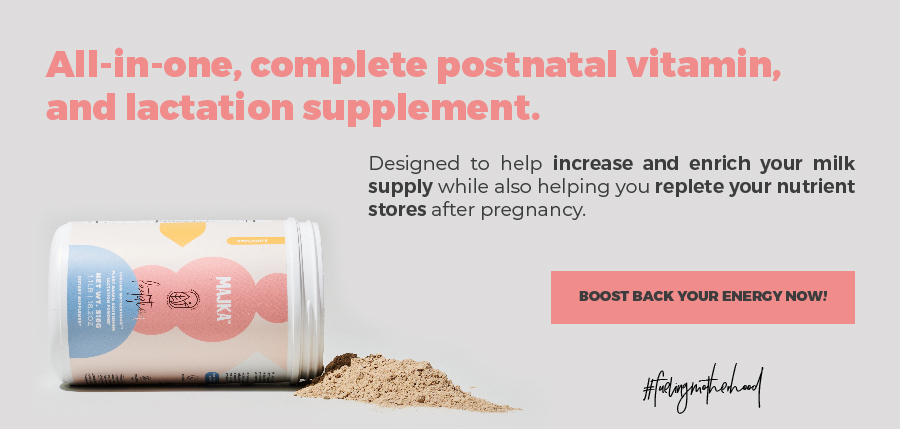
Having an infertility challenge can make partners feel overwhelmed with all the information that is offered now about alternatives for it. This article has the intention to make this process more clear for you by showing the overall information that can help you make the decision that is more comfortable for you along with your partner and your doctor.
When do I know that I need a fertility treatment?
Knowing when to consider fertility treatments can be influenced by various factors. but if you’re wondering whether it’s time to explore this, here are some signs to keep in mind:
- Age: women’s fertility starts declining after the age of 35 and decline accelerates after 40. Keep in mind that each person is different and that your doctor will know best about your specific case.
- Time: infertility is typically defined as the inability to conceive after a year.
- Having experienced recurrent miscarriages.
- Medical history: if you or your partner have a history of reproductive health trouble such as male infertility, low sperm count, irregular menstrual cycles, polycystic ovary syndrome or endometriosis.
Keep in mind that there are many other factors that contribute to infertility such as smoking, obesity, excessive alcohol consumption and emotional readiness.
It’s important to maintain an open communication with your partner regarding your needs and concerns and then to communicate them with a healthcare professional to get the help that you may need.
Can I have fertility treatment If I already have a child? Yes!
Having a child doesn’t mean that your current circumstances don’t show fertility challenges now that you want to have another baby; you may now be experiencing secondary infertility (having difficulty conceiving a second or subsequent child) which can arise due to different reasons such as age, health changes or lifestyle.
What types of fertility treatments are there?
Although there are many types of fertility treatments, this choice needs to consider your medical history, age, fertility diagnosis, and any ethical or personal considerations you and your partner may have. With that being said, here are some of the most common fertility treatments offer:
- Ovulation Induction: often used for women who have irregular ovulation or who don’t ovulate regularly; it involves using medications to stimulate the ovaries to produce multiple eggs in a single cycle.
- In Vitro Fertilization (IVF): one of the most well-known fertility treatments and is suitable for various fertility issues, including blocked fallopian tubes, endometriosis, and male infertility. It involves retrieving eggs from the ovaries, fertilizing them with sperm in a laboratory, and then transferring the resulting embryos into your uterus.
- Intracytoplasmic Sperm Injection (ICSI): is a variation of IVF, often used when there are severe male fertility issues, such as low sperm count or poor sperm motility. In this treatment, a single sperm is directly injected into an egg to facilitate fertilization.
- Intrauterine Insemination (IUI): involves placing specially prepared sperm directly into the uterus close to the time of ovulation. It’s commonly used when there are issues with the sperm, cervical mucus, or unexplained infertility. It’s a less invasive option compared to other treatments.
- Zygote Intrafallopian Transfer (ZIFT): involves fertilizing eggs and sperm in a laboratory and the resulting embryos are transferred into the fallopian tubes.
- Gamete Intrafallopian Transfer (GIFT): it also involves collecting eggs and sperm, then placing them into the fallopian tubes but, in this process fertilization happens naturally within the woman’s body. This is usually chosen when religious or personal beliefs prohibit fertilization outside the body.
- Laparoscopic Surgery: surgical procedures that can be used in cases of certain fertility issues like endometriosis, fibroids, or blocked fallopian tubes.
- Preimplantation Genetic Testing (PGT): involves testing embryos for genetic abnormalities before they are transferred during IVF in order to help reduce the risk of certain genetic conditions or chromosomal abnormalities.
- Egg or Sperm Donation: when one partner has a fertility issue that cannot be resolved with their own gametes, donor eggs or sperm can be used for fertilization.
- Surrogacy: in cases where a woman cannot carry a pregnancy to term, a surrogate can carry the embryo to term.
Keep in mind that you don’t have to get involved in any procedure that you are not comfortable with, even if it’s shown to be suitable for your case, always talk to your partner and healthcare provider about your overall needs and concerns before making any decision.
How long does fertility treatment take?
We understand that you may be feeling anxious or in a rush to get some results, but keep in mind that the duration of fertility treatment can vary widely depending on several factors, including the type of treatment, individual circumstances, and the number of treatment cycles required and that doesn’t have to mean that is not working or that you are doing anything wrong.
Here’s a general overview of the timeframes:
- Ovulation Induction: the entire process, including monitoring and attempting conception, can take a few weeks.
- Intrauterine Insemination (IUI): this entire process usually spans a few weeks, with IUI performed around the time of ovulation.
- In Vitro Fertilization (IVF): the process from the start of medication to embryo transfer typically takes around 4 to 6 weeks.
- Gamete Intrafallopian Transfer (GIFT) The egg retrieval and embryo transfer steps are typically the same as in IVF (takes around 4 to 6 weeks).
- Egg or Sperm Donation: is generally similar to IVF, including ovarian stimulation, retrieval, and embryo transfer.
- Surrogacy: this can take months to a year or more to complete the entire journey due to legal processes, medical assessments and embryo transfers.
- Preimplantation Genetic Testing (PGT): involves additional testing which may take a few weeks plus the added time to the IVF.
- Laparoscopic Surgery: these procedures can vary in complexity and recovery time. Some may take a few days to a week of recovery, while others require several weeks.
How much do they cost?
The cost of fertility treatments vary significantly depending on your treatment, location (cost can change over time and differ from one clinic to another), and additional expenses such as consultations, medications, fertility testing, anesthesia fees, and potential additional cycles.
The expense that you make in your treatment may also depend on your insurance (if you have one) as some insurance plans might cover certain aspects of fertility treatment.
The general overview can be from a few hundred to thousands depending on the procedure, here are some examples:
- Ovulation Induction can range from a few hundred to around a thousand dollars per cycle.
- Intrauterine Insemination (IUI) can range from $500 to $4,000 per cycle, depending on location and clinic.
- A single In Vitro Fertilization (IVF) can range from $12,000 to $15,000, but it can be higher, especially when additional services like preimplantation genetic testing (PGT) are included.
- Intracytoplasmic Sperm Injection (ICSI) can add around $1,000 to $2,000 to the overall cost.
- Egg or Sperm Donation can vary widely, it can make the total cost range from $20,000 to $40,000 or more.
- Surrogacy total costs can vary greatly and might range from $80,000 to $150,000 or more.
Before starting any fertility treatment, it’s advisable to research clinics, discuss costs upfront, and inquire about any potential financing options or packages they might offer.
Is there any risk of doing them?
Like any medical procedure, fertility treatments come with potential risks and complications depending on the type of treatment and your individual health.
Stimulating egg production can increase the chances of having a multiple pregnancy (having twins or triplets); it can also make ovaries to become swollen and painful which is called Ovarian Hyperstimulation Syndrome (OHSS).
Fertility treatments slightly increase the risk of ectopic pregnancies, where a fertilized egg implants outside the uterus, usually in the fallopian tube, these are important to be detected and treated promptly.
Like any procedure and medication, fertility treatments may have some side effects or allergic reactions involved. While these risks exist, many families undergo fertility treatments successfully with minimal complications!
Do not judge yourself regarding any decision that you make, your body and situation is unique and you are always allowed to make the decision that feels best for you.
In Breastfeeding 101 we hope this information has helped you to know the overall view on fertility treatment to make you feel more informed and clear about these options.
We are very happy that you are here and invite you to follow all of our content regarding health topics.
If you want to deepen more in the topic of fertility treatments, here are some of the sources that made this article possible:
- Female fertility I Mayo Clinic
- Having a Baby After Age 35: How Aging Affects Fertility and Pregnancy I ACOG
- Infertility I Cleveland Clinic
- Infertility I Mayo Clinic
- Infertility I WHO
- Intracytoplasmic Sperm Injection (ICSI) I Cleveland Clinic
- In vitro fertilization (IVF) I Mayo Clinic
- Lifestyle factors and reproductive health: taking control of your fertility I BMC
- Secondary infertility I Cleveland Clinic
- Ovarian hyperstimulation syndrome I National Library of Medicine
- Ovulation induction I Johns Hopkins
- Treatment infertility I NHS
Annie Rueb






